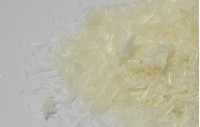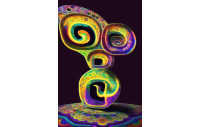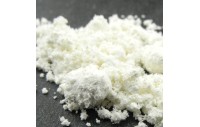
Buy Memantine for sale online - USA vendor

- FREE shipping, 6-7 days delivery time
- Inner sending exist.
The main payment option is Bitcoin. As extra ways WU, MG.
We alwayse provide FREE samples of Top products with the main order.
Loyalty program exist, second order will be - 5%OFF
Safely work only with us! We provide - re-shipment guarantees.
Here you'll discover unused lawful items of immaculate quality.
Some time recently purchase if you don't mind make beyond any doubt that the items beneath your curiously are lawful in your country.
We do not offer a pharmaceutical items or beneath control items.
Table of Contents
- Introduction
- Chemistry
- Pharmacology
- Glutamatergic Modulation (NMDA Receptor)
- Serotonergic Modulation (5-HT3 Receptor)
- Cholinergic Modulation (Nicotinic Acetylcholine Receptor)
- Dopaminergic Modulation (D2 Receptor)
- Sigmaergic Modulation (σ1 Receptor)
- Dosage and Bioavailability
- Physical Effects
- Visual Effects
- Cognitive Effects
- Auditory Effects and Disconnective Effects
- Transpersonal Effects and Experience Reports
- Toxicity, Tolerance, and Legal Status
- FAQ
Understanding Memantine: A Dissociative Substance
Introduction to Memantine
Memantine, belonging to the adamantane class, stands out as a dissociative substance known for inducing long-lasting dissociative effects upon administration. Although not widely recognized for recreational purposes, it shares pharmacological ties with notable compounds like PCP, ketamine, and DXM.
Origins and Development
Memantine's inception traces back to 1968 when Eli Lilly and Company synthesized it with the intention of exploring its potential in treating diabetes. Despite this initial purpose, memantine took a divergent path towards its current applications.
Pharmacological Classification
At its core, memantine operates as an NMDA receptor antagonist, exerting its effects by binding to and impeding the signaling of excitatory receptors within the central nervous system. This mechanism underpins its ability to induce a state termed "dissociative-anesthesia," characterized by various hallucinogenic properties.
Medical Applications
In the realm of medicine, memantine finds predominant utilization in combating neurodegenerative conditions such as Alzheimer's disease. Its efficacy in this domain has positioned it as a significant therapeutic agent. Moreover, memantine has garnered attention as a nootropic due to its cognitive-enhancing properties, further expanding its medical repertoire.
Unveiling Memantine: A Chemical Perspective
Chemical Composition
Memantine, also known as 3,5-dimethyladamantan-1-amine, emerges as a synthesized molecule categorized under substituted adamantane derivatives. Its fundamental structure comprises adamantane, characterized by four interlocked cyclohexane rings forming a stable 3-dimensional lattice conformation. Notably, memantine features methyl substitutions at both R3 and R5 positions, along with an amine substitution at R1, elucidating its nomenclature, 3,5-dimethyladamantan-1-amine.
Understanding Memantine's Pharmacology
Glutamatergic Modulation (NMDA Receptor)
Memantine functions as a moderate-affinity voltage-dependent uncompetitive antagonist targeting glutamatergic NMDA receptors. These receptors facilitate electrical signal transmission among neurons in the brain and spinal column. Dissociatives like memantine induce closure of NMDA receptors, leading to neuronal disconnection and subsequent effects such as loss of sensation, impaired movement, and the renowned "hole" sensation. Memantine's distinctive pharmacological kinetics, characterized by fast voltage-dependent binding, resemble endogenous magnesium more closely than other dissociatives, endowing it with neuroprotective attributes even at non-impairing doses, thereby presenting potential in treating neurodegenerative disorders.
Serotonergic Modulation (5-HT3 Receptor)
As a non-competitive antagonist, memantine exhibits comparable potency at the 5-HT3 receptor akin to its activity at the NMDA receptor.
Cholinergic Modulation (Nicotinic Acetylcholine Receptor)
Memantine acts as a non-competitive antagonist at various neuronal nicotinic acetylcholine receptors (nAChRs), with potency potentially akin to its actions at NMDA and 5-HT3 receptors. However, the rapid desensitization of nAChR responses complicates precise determination. Notably, alpha-7 nAChR upregulates swiftly in response to antagonism, potentially elucidating the cognitive-enhancing effects observed with chronic memantine administration.
Dopaminergic Modulation (D2 Receptor)
At the dopamine D2 receptor, memantine serves as an agonist with affinity either equal to or slightly higher than its affinity at NMDA receptors.
Sigmaergic Modulation (σ1 Receptor)
Memantine acts as an agonist at the σ1 receptor with a low Ki, although the precise effects of this activity remain ambiguous due to the limited understanding of sigma receptors' role in physiology. Memantine's affinity at the sigma binding site may not suffice to induce significant agonistic effects, possibly resulting in partial agonism or antagonism.
Subjective Effects
It's imperative to acknowledge that the subjective effects of memantine, documented through the Subjective Effect Index (SEI), are derived from anecdotal user reports and the analyses of PsychonautWiki contributors. These effects may not manifest reliably or predictably, with higher doses posing greater risks of adverse effects like addiction, severe injury, or fatality.
Understanding Memantine Dosage and Bioavailability
Bioavailability
Memantine exhibits a bioavailability ranging from 41% to 63%, denoting the proportion of the administered dose that enters systemic circulation unchanged. This range underscores the variability in memantine's absorption and utilization within the body.
Dosage Thresholds and Ranges
-
Threshold: The minimum effective dose of memantine is reported to be 10 mg, marking the point at which discernible effects begin to manifest.
-
Light: Light doses typically range between 30 mg to 70 mg, eliciting subtle yet perceptible effects.
-
Common: Common doses fall within the range of 70 mg to 110 mg, producing moderate effects that are often manageable for users.
-
Strong: Strong doses encompass the interval of 110 mg to 170 mg, inducing profound and intense effects.
-
Heavy: Heavy doses exceed 170 mg and are characterized by overwhelmingly potent effects, often challenging for individuals to manage.
Examining Physical Effects of Memantine
Stimulation
Memantine presents mild stimulation compared to other dissociatives like ketamine, MXE, or DCK, albeit less intense than PCP and its derivatives.
Spontaneous Bodily Sensations
Users often report a distinct "body high" with memantine, characterized by a sharp, pleasurable tingling sensation localized in the hands, feet, and head.
Stamina Enhancement and Bodily Control
Memantine may enhance stamina and bodily control, contributing to improved physical performance.
Cough and Appetite Suppression
Memantine exhibits cough and appetite suppression effects, which may be beneficial for individuals seeking relief from these symptoms.
Libido and Orgasm Suppression
Users may experience decreased libido and suppressed orgasms while under the influence of memantine.
Dizziness and Changes in Felt Gravity
At higher doses, memantine can induce dizziness, sometimes accompanied by sensations of rapid horizontal spinning when the eyes are closed, along with alterations in perceived gravity.
Heart Rate Increase and Nausea
Increased heart rate and nausea, especially at high doses, are reported effects of memantine.
Pain Relief and Lightness Perception
Memantine may provide pain relief and create a perception of bodily lightness, encouraging physical activities due to reduced feelings of weight.
Euphoria and Tactile Suppression
Users may experience varying degrees of physical euphoria and partial to complete suppression of tactile sensations, resulting in numbness in extremities.
Motor Control Loss and Difficulty Urinating
Memantine can lead to loss of gross and fine motor control, balance, and coordination, particularly at higher doses, alongside difficulties in urination.
Visual Effects of Memantine
Enhancement and Suppression
Memantine may enhance visual acuity and color perception while also suppressing visual acuity, resulting in blurred or muddled vision.
Distortions and Hallucinatory States
Users may experience distortions in visual perception, including symmetrical texture repetition, brightness alteration, drifting, and visual haze. At higher doses, memantine can induce hallucinatory states characterized by machinescapes and internal hallucinations.
Cognitive Effects
Memantine's cognitive effects include clear-headedness, amnesia, anxiety suppression, cognitive euphoria, conceptual thinking, and time distortion.
Auditory Effects and Disconnective Effects
Auditory effects of memantine range from distortion to enhancement and hallucination. The drug also induces physical, visual, and cognitive disconnection, potentially leading to experiences akin to the "k-hole" associated with ketamine.
Transpersonal Effects and Experience Reports
Memantine can evoke transpersonal experiences, including existential self-realization. Anecdotal reports from users offer insights into the subjective effects of memantine consumption.
Toxicity, Tolerance, and Legal Status
The long-term health effects of recreational memantine use remain largely unstudied. While toxicity levels and addiction potential are unclear, caution is advised when combining memantine with other substances due to potential dangerous interactions. Memantine is regulated under prescription laws in various countries, including Australia, France, Germany, Russia, Switzerland, the United Kingdom, and the United States.
Toxicity and Harm Potential
The scientific understanding of the toxicity and long-term health effects of recreational memantine use is limited. Reported tolerances suggest doses of up to 400 mg have been tolerated, although this is anecdotal. Due to its limited history of recreational use, the exact toxic dosage remains unknown.
Anecdotal evidence suggests that low to moderate doses of memantine used sparingly do not typically result in negative health effects. However, caution should always be exercised, and independent research should be conducted to ensure the safety of combining memantine with other substances.
Tolerance and Addiction Potential
The potential for dependence on memantine is not well understood. However, due to its prolonged duration and onset, redosing is discouraged, reducing the likelihood of addiction. Memantine may induce cross-tolerance with other dissociatives, diminishing their effects after memantine consumption.
Dangerous Interactions
Memantine has limited information regarding its interactions with other drugs, necessitating caution when combining it with other substances. Combining memantine with stimulants or depressants carries risks of adverse psychological reactions and respiratory depression, respectively. Additionally, interactions with cannabis, nicotine, opioids, and alcohol may potentiate their effects, requiring careful consideration and monitoring.
Legal Status
Memantine is subject to prescription regulations in several countries, including Australia, France, Germany, Russia, Switzerland, the United Kingdom, and the United States. Its use without a prescription is prohibited in these jurisdictions, highlighting its controlled status.
Frequently Asked Questions (FAQ)
-
Is memantine a recreational drug?
- While memantine is primarily used for medical purposes, it can induce dissociative effects sought after by some recreational users. However, its recreational use is less common compared to other dissociatives.
-
What is the recommended dosage of memantine?
- Dosage recommendations vary depending on individual tolerance and desired effects. However, common doses range from 70 mg to 110 mg, with higher doses leading to stronger effects.
-
What are the potential side effects of memantine?
- Memantine can cause a range of side effects, including nausea, dizziness, increased heart rate, difficulty urinating, and visual distortions. Higher doses may lead to more intense effects and potential risks.
-
Is memantine addictive?
- The addictive potential of memantine is not well understood. However, due to its long duration and onset, redosing is discouraged, potentially reducing the likelihood of addiction.
-
Are there any dangerous interactions with memantine and other substances?
- Combining memantine with stimulants or depressants can lead to adverse reactions, including anxiety, respiratory depression, and increased risk of unconsciousness. Caution should be exercised when combining memantine with other drugs.
-
What is the legal status of memantine?
- Memantine is regulated under prescription laws in various countries, including Australia, France, Germany, Russia, Switzerland, the United Kingdom, and the United States. Its use without a prescription is prohibited in these jurisdictions.










